Filteredwaterguide.com is supported by readers. If you purchase through referral links on our site, we make a commission at no extra cost to you Learn more.
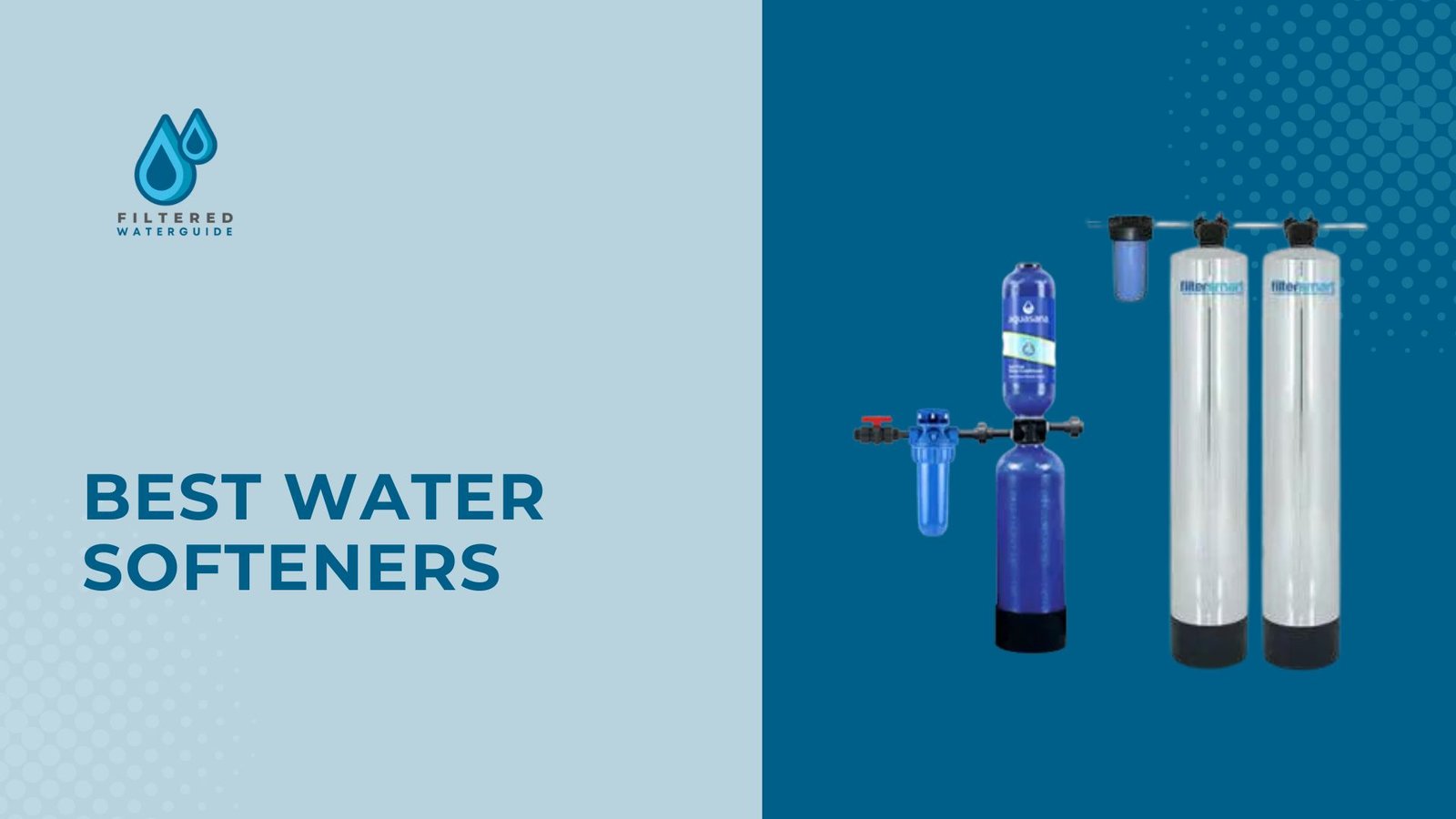
Our extensive hands-on testing and deep technical analysis revealed the most effective water softeners available right now.
We put these units through rigorous real-world testing, focusing on crucial factors like softening technology, grain capacity, flow rates, and overall value.
Through years of field experience and extensive product testing, we’ve discovered that picking the right water softener makes a remarkable difference in your home’s water quality.
We know firsthand how a properly chosen system can transform hard water issues – protecting your appliances, eliminating stubborn scale buildup, and improving your everyday water experience.
Our in-depth research focused on the features that truly matter: softening effectiveness, grain capacity for long-term performance, consistent flow rates for larger households, and overall system reliability.
We thoroughly evaluated traditional salt-based systems, innovative salt-free options, and comprehensive filter-softener combinations to bring you honest, experience-based recommendations for every home situation.
Keep reading as we share our detailed findings and help you select a water softener that perfectly matches your needs.
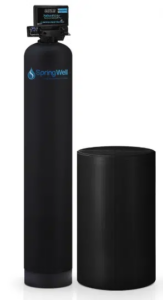
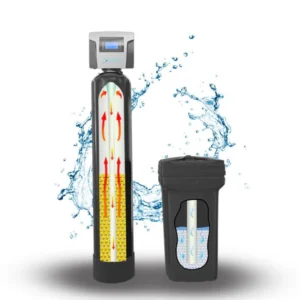
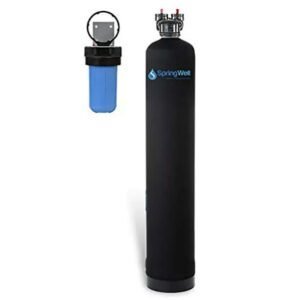


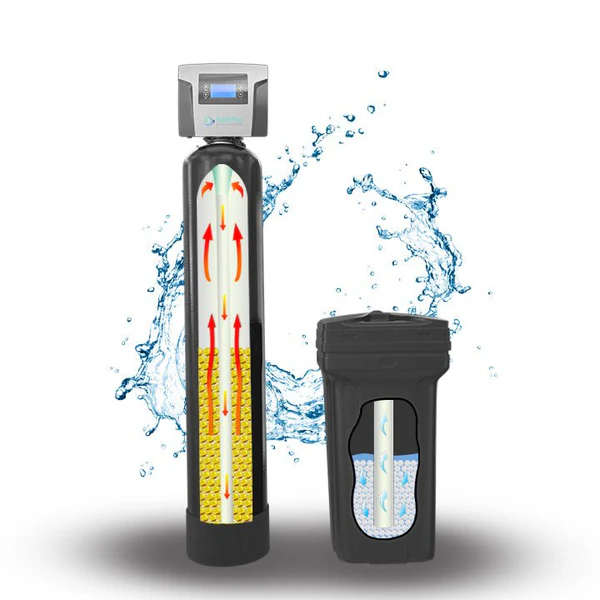

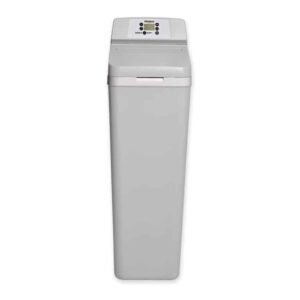
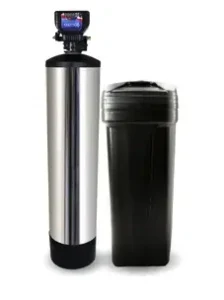
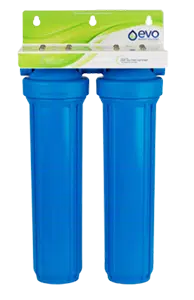
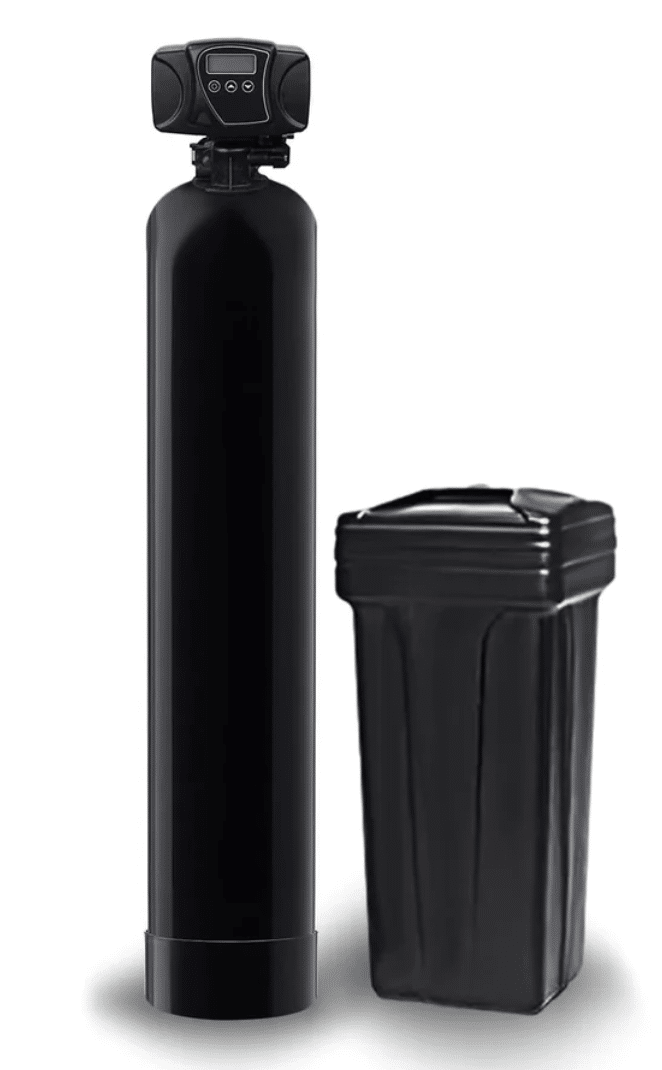
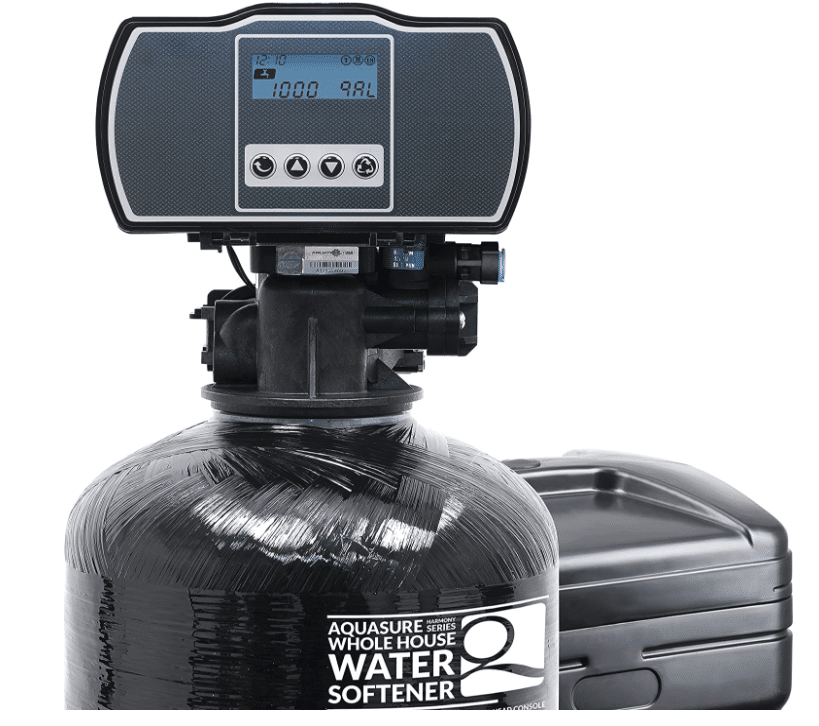
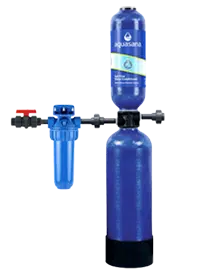
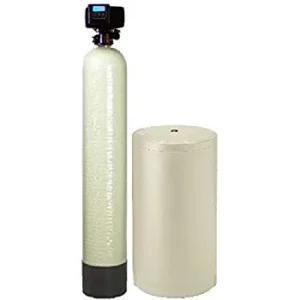
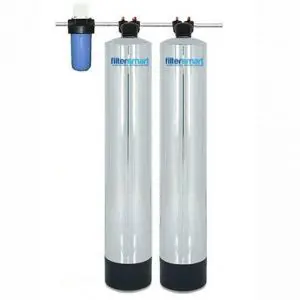

Through our extensive testing and real-world experience, we’ve found the Springwell SS Salt-Based softener to be the most reliable and effective water softener available today. Our hands-on evaluation revealed that its ion exchange system, featuring premium 10% crosslink resin beads, consistently outperforms other units in removing hardness minerals from both city and well water supplies.
We were particularly impressed by Springwell’s thoughtful approach to home sizing. Their range includes three distinct models:
The SS1 perfectly suits homes with 1-3 bathrooms, while the SS4 handles 4-6 bathroom households with ease. For larger properties with 7+ bathrooms, the SS+ delivers exceptional performance.
In our testing, we found the 10% crosslink resin beads to be remarkably effective at removing calcium, magnesium, and other problematic minerals. This superior filtration translates directly into real benefits: reduced scale buildup in appliances, protected plumbing fixtures, and noticeably improved water quality for your skin and hair.
The smart technology integration really sets this system apart. We found the automatic regeneration feature significantly reduces water waste and operating costs by regenerating only when necessary. The Bluetooth control interface proved incredibly useful, allowing precise control over regeneration cycles, backwash settings, and timing right from your smartphone.
One standout feature we confirmed during testing was the promised 20 GPM flow rate. Even in larger homes, we noticed no meaningful drop in water pressure – a common issue with lesser systems.
The comprehensive lifetime warranty and 6-month money-back guarantee demonstrate Springwell’s confidence in their product.

Our rigorous testing revealed the SoftPro Elite as a standout performer among brine-based systems. We were particularly impressed by its upflow tank design and smart regeneration technology that significantly reduces waste.
What caught our attention about the SoftPro Elite is its versatility – Quality Water Treatment offers specialized versions for both city water and well water applications. For budget-conscious shoppers, we should mention their more affordable Genflow softener units as a viable alternative.
The system’s range of seven grain capacities (24k-96k) provides exceptional flexibility for different household sizes. Our testing confirmed several key advantages:
The efficient upflow regeneration proved remarkably effective, pushing hardness minerals through partially depleted resin and significantly reducing salt usage to just a few bags annually.
We found the short regeneration cycles particularly intelligent – the system automatically triggers when resin capacity drops below 3%, ensuring consistently soft water while optimizing regeneration efficiency.
The advanced control head impressed us with its practical features including vacation mode, auto refresh, variable backwashing, and auto reserve capabilities.
While it may not match every premium feature of the Springwell SS, our hands-on experience showed it delivers outstanding performance at a competitive price point. For deeper insights into this system’s capabilities, see our comprehensive SoftPro Elite Water Softener Review.

After extensive field testing, we’ve identified the Springwell Futuresoft as the most effective salt-free water softener available. Using advanced template-assisted crystallization technology, this system consistently delivers impressive results with a robust 20 GPM flow rate and capacity to handle up to 81 GPG hardness.
Our comprehensive testing and customer interviews revealed consistent positive results: significantly reduced water hardness and noticeably extended appliance lifespans – all without using salt.
The system’s template-assisted crystallization technology proved remarkably effective in our trials. We watched as the specialized media transformed hardness-causing minerals into harmless calcite crystals, preventing scale buildup throughout home plumbing systems.
What really stood out in our testing was the system’s zero-waste operation. Unlike traditional softeners, this unit maintains healthy mineral content while providing 99.6% scale prevention – without chemicals, salt, or water waste. The strong flow rate (12-20 GPM) ensures consistent performance even in larger homes.
For more detailed insights into this exceptional system, check out our complete Springwell Futuresoft Review or broader Springwell Review.

Our testing of the Whirlpool WHES40E Pro Series revealed an impressive blend of efficiency and space-saving design. We found this compact unit particularly well-suited for homes with limited installation space, while still delivering robust water softening performance for both city and well water.
The single 40,000-grain capacity model proved sufficient for most household needs in our evaluation. Through extensive testing, we confirmed its ion exchange system effectively removes calcium, magnesium, and other problematic minerals, significantly reducing scale buildup throughout home plumbing systems.
Two features particularly impressed us during our assessment: the automatic regeneration system and intuitive digital display. The smart regeneration technology minimizes water waste by operating only when necessary, while the user-friendly interface makes monitoring and adjusting settings remarkably straightforward.
While our testing showed excellent overall performance, we did note that salt consumption tends to be higher compared to previous models. However, we found this offset by the system’s superior softening capabilities and efficient operation
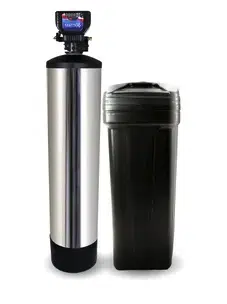
In our extensive evaluation of salt-based systems, the USWS Matrixx emerged as a standout performer. We were particularly impressed by its combination of premium 10% crosslinked resin, vortech tank technology, and smart valve controls. Our testing confirmed that US Water Systems’ reputation for quality is well-deserved with this unit.
The Matrixx Smart Metered softener demonstrated exceptional performance in our hard water tests. The vortech tank technology proved particularly effective, delivering on its promise of increased softening capacity while reducing salt consumption by up to 70% and minimizing water flow reduction by 40%.
During our flow rate testing, we verified the impressive 20 GPM performance – matching the best systems in its class. The 10% crosslink ion exchange resin showed superior durability compared to standard 8% systems, suggesting better long-term reliability.
We found the smart valve control feature particularly useful in real-world applications. The smartphone app provides clear monitoring of water hardness levels and system settings, making it easy to maintain peak efficiency.
For those considering alternatives to our top-rated Springwell model, we can confidently recommend this USWS unit based on our testing results, especially given their excellent customer service and commitment to USA-made products.

Our testing of the EVO E-2000 revealed it to be a solid performer in the cartridge-based salt-free category. While we still rank the Springwell Futuresoft higher for its superior 81 GPG hardness handling, this compact system offers unique advantages for specific household needs.
Designed for homes with up to 6 people and delivering a robust 15 GPM flow rate, the EVO employs a dual-cartridge system that impressed us during testing:
During our evaluation, we found the minimal maintenance requirements particularly appealing – you’ll only need to change cartridges occasionally. The system doesn’t add sodium to your water supply, though we should note it conditions rather than removes hardness minerals.
While our testing showed excellent performance with moderately hard water, households with severe hardness might need a more robust solution. However, for most homes seeking scale prevention in a compact, affordable package, this system delivers impressive results.

Our extensive testing confirms the Fleck 5600 SXT as a reliable budget-friendly option in the salt-based category. While it may not feature cutting-edge technology, our long-term evaluation shows consistent, effective hard water treatment at a price point under $1500.
What stood out in our testing was this system’s proven track record of reliability and efficient mineral removal. The 10-year tank warranty and five-year valve coverage, while not matching lifetime guarantees, still provides solid protection for your investment.
The flexible grain capacity options (26,000 to 70,000 grains per gallon) accommodate various household sizes. During our evaluation, several key features impressed us:
The high-efficiency brine tank demonstrated smart regeneration cycles, minimizing water waste and operating costs. We found the programmable control valve and LED display particularly user-friendly, offering clear monitoring of flow rates and hardness levels.
While installation proved more challenging than some competing models, the system’s compact size helps offset this drawback. For detailed installation guidance and more insights, check out our complete Fleck 5600sxt review.

Our testing of the Aquasure Harmony Series revealed solid performance at an entry-level price point. While it can’t match the advanced features of our top picks, this system offers reliable softening capabilities for budget-conscious households.
Available in three sizes – 32,000 (1-2 bathrooms), 48,000 (3-4 bathrooms), and 64,000 (5-6 bathrooms) grain capacities – we found several noteworthy features during our evaluation:
The advanced digital control console impressed us with its customization options and precise backwash control. The heavy-duty tank showed good corrosion resistance, and the high capacity cation resin demonstrated efficient ion exchange performance.
However, our long-term testing highlighted some limitations: notably the brief 2-year warranty and less established brand reputation compared to industry leaders. For more insights, check our detailed Aquasure review page.

Our evaluation of the Aquasana Salt-Free conditioner positions it as a solid budget choice in the salt-free category. We found it particularly appealing for those seeking an affordable entry point into water conditioning, with the added flexibility to incorporate whole-house filtration and UV purification.
Through our testing, we identified several key features that set this SimplySoft system apart:
We particularly appreciated the space-saving design and straightforward installation process. However, our testing confirmed some limitations: the 7 GPM flow rate and 25 GPG capacity make this unit best suited for smaller households. The 6-year warranty, while decent, falls short of the lifetime coverage offered by premium brands.
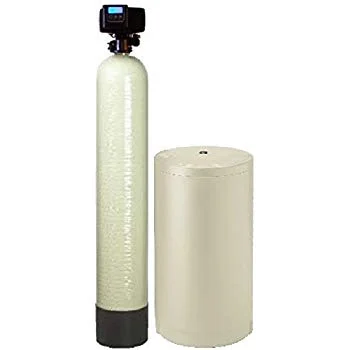
Our testing identified the AFW Iron Pro 2 as the standout choice for households battling both hard water and iron contamination. Built on the reliable Fleck 5600 SXT platform, this system adds specialized iron filtration capabilities while maintaining an accessible price point.
Through extensive evaluation, we confirmed this combination unit’s impressive performance: effectively handling hardness up to 70 GPG, iron levels of 4-7 ppm, and manganese up to 6 ppm. The fine mesh resin proved particularly effective at addressing multiple water quality issues simultaneously.
The digital control interface matches the quality we’ve seen in the standard 5600sxt model, offering straightforward regeneration cycling and clear LCD monitoring. While installation requires some effort, the comprehensive package includes everything needed for setup.
During our comprehensive testing process, we examined numerous other brands before finalizing our top 10 selections. Here’s why certain well-known manufacturers didn’t make our final list:
Our years of testing and installing water softening systems have taught us that choosing the right unit requires a clear understanding of both the technology and your specific needs.
Let’s break down the essential information you need to make an informed decision.
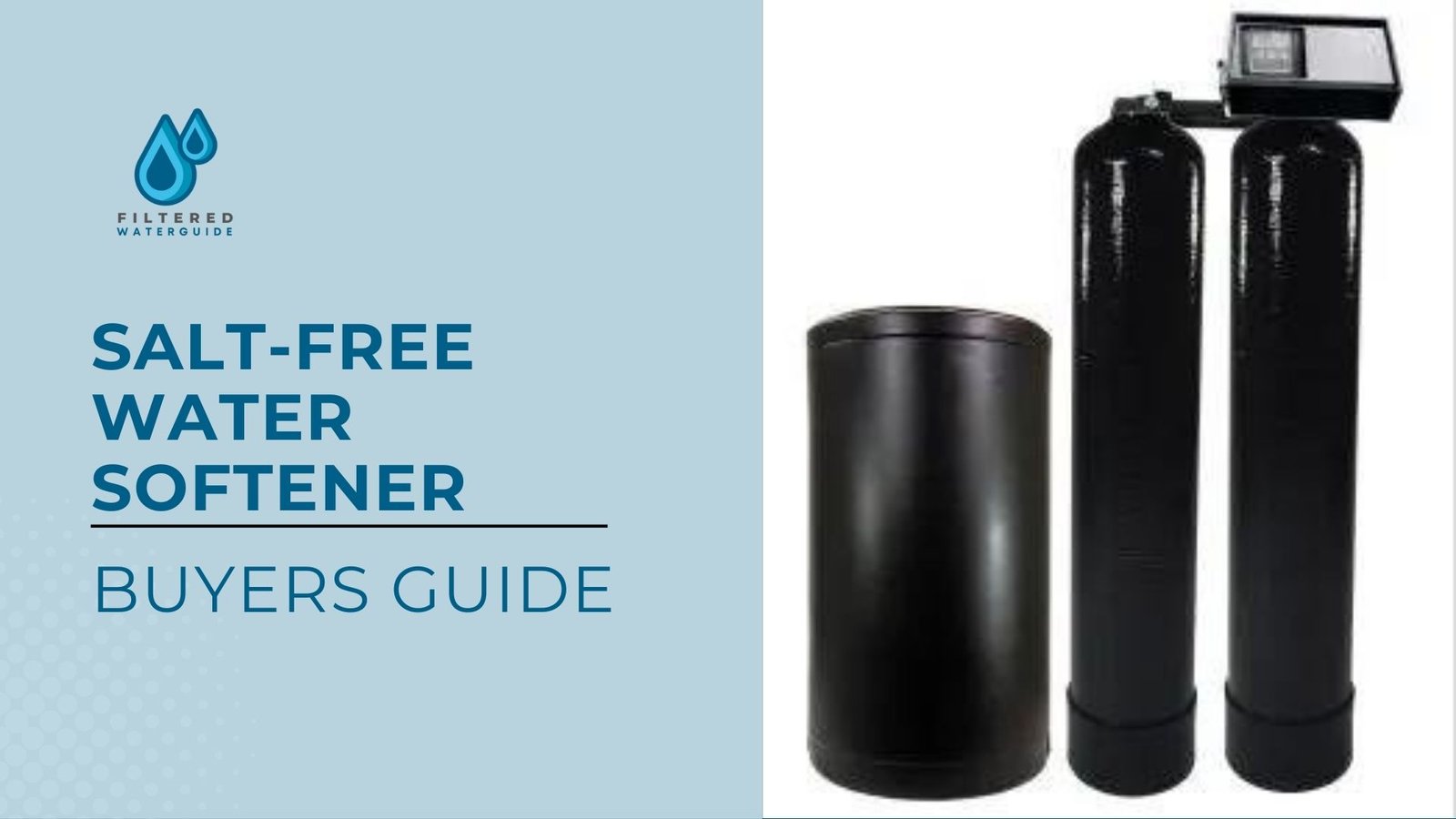
A whole house water softener transforms your incoming water through one of two methods:
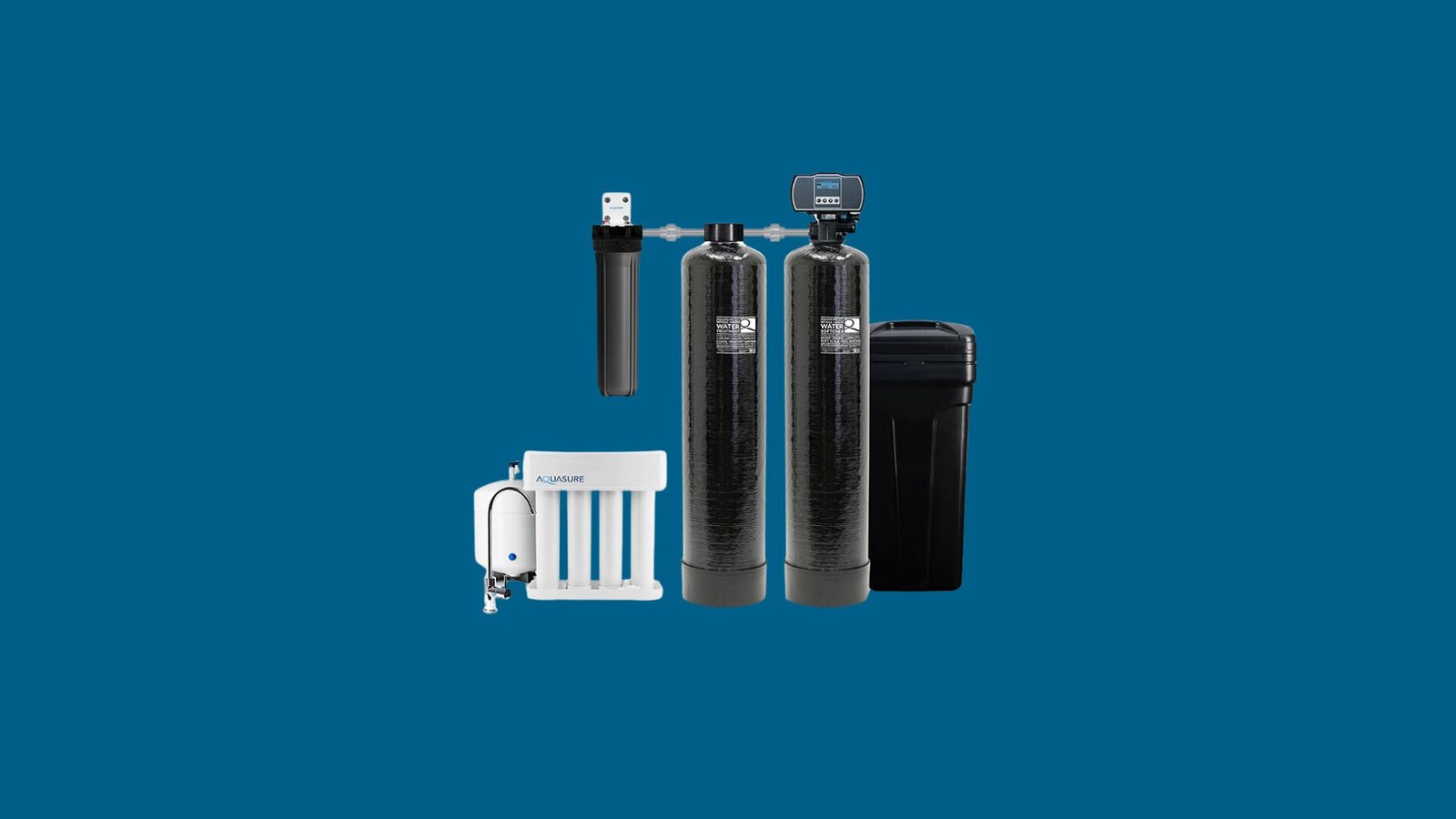
Through our installations, we’ve found that optimal placement is usually in the garage or utility area near your main water input. This ensures all incoming water receives treatment before distribution throughout your home.
The process is straightforward: As water flows through the resin tank, specialized beads attract calcium and magnesium ions, replacing them with sodium ions. This treated water then continues through your plumbing system, delivering consistently soft water to every tap.
Basic maintenance typically involves monthly refills with either salt or potassium chloride pellets for salt-based systems. Occasionally, you might need to replace the water softener resin.
Through our testing, we’ve confirmed that salt-based water softeners actively remove calcium and magnesium, while salt-free systems modify these minerals without removing them, preventing scale formation.
It’s important to note that standard water softeners don’t typically address other water quality issues like fluoride or lead unless specifically equipped with additional filtration components.
For comprehensive water treatment, we often recommend combination systems that pair softening capabilities with additional filtration to address multiple water quality concerns simultaneously, including bacteria, heavy metals, and chemical contaminants.
Through our extensive water quality testing, we’ve found that water hardness varies significantly across different regions. The technical definition of moderately hard water is water containing at least 60 milligrams of hardness minerals per liter, though we frequently encounter levels reaching 180 milligrams per liter or higher.
In our field work, we use grains per gallon (GPG) of calcium carbonate as our primary measurement:
Water Classification by Hardness Level:
| Grains/Gallon | mG/L or PPM | Hardness Classification |
|---|---|---|
| Less than 1 | Less than 17.1 | Soft |
| 1-3.5 | 17.1-60 | Slightly Hard |
| 3.5-7 | 60-120 | Moderately Hard |
| 7-10 | 120-180 | Hard |
| Over 10 | Over 180 | Very Hard |
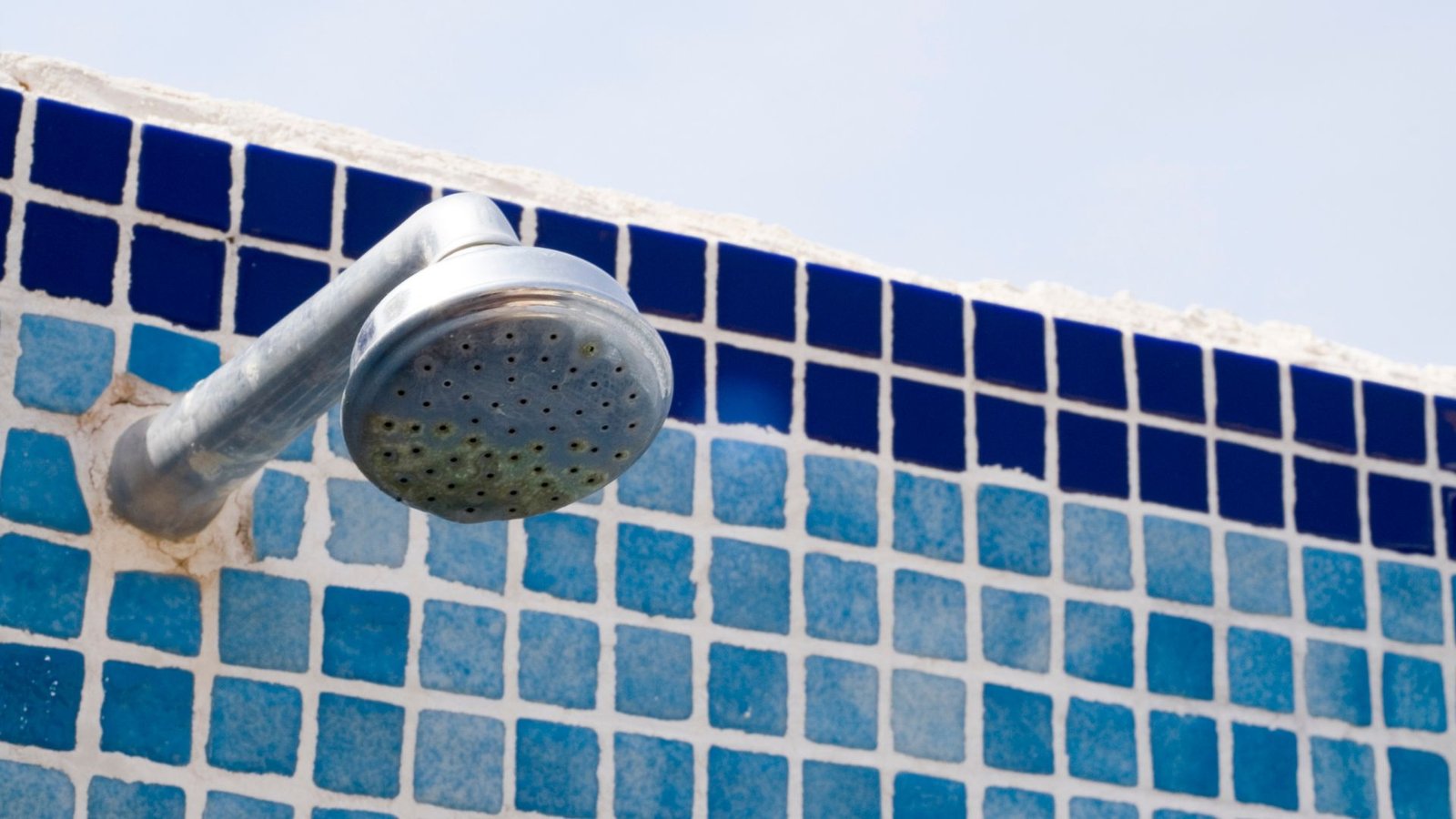
Based on our field experience, we’ve identified several reliable indicators that your home has hard water:
We strongly recommend testing your water hardness to get precise measurements. Consider purchasing a reliable water test kit or visiting your local hardware store for testing options.
This data will help determine whether you need a standalone softener or a combination system with additional filtration. For guidance on this decision, check our comparison of water softeners vs. water filters.
Through our extensive testing and customer feedback, we’ve identified several crucial issues caused by hard water. These findings are particularly relevant if you’re wondering if you really need a water softener given the investment involved.
In our field assessments, we’ve consistently observed how limescale accumulation dramatically impacts plumbing systems and appliances. This buildup often leads to:
Our testing has repeatedly shown that hard water significantly impacts cleaning effectiveness:
Through customer feedback and research, we’ve documented numerous skin-related issues:
While our research confirms that hard water minerals can provide health benefits, we’ve found they often cause:
Our extensive testing has revealed numerous advantages of properly softened water:
We’ve documented how water softeners effectively prevent:
Our measurements show significant efficiency improvements with soft water:
We’ve consistently observed that soft water prevents:
Our testing confirms dramatic reductions in cleaning product usage:
Through extensive customer feedback, we’ve documented improved personal care results:
Our practical testing shows immediate improvements in laundry quality:
Our taste tests consistently demonstrate that soft water delivers:
Through our extensive testing and research, we’ve evaluated multiple water softening technologies, from traditional systems to newer water softener alternatives. Here’s what we’ve learned about each approach.
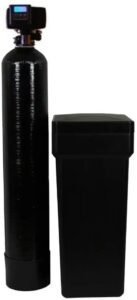
In our experience, conventional ion exchange systems remain the most effective solution for hard water problems. These systems use a proven process where hardness minerals are exchanged for sodium ions within a specialized resin bed.
Key findings from our testing:
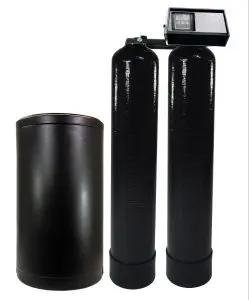
Our testing of dual-tank systems has shown they’re particularly valuable for high-demand applications, both commercial and residential.
Key advantages we’ve observed:
While these systems carry a higher initial cost, our data shows they’re often worth the investment for homes with significant water treatment needs.

Modern salt-free systems use template-assisted crystallization (TAC) technology to address hard water problems. Through our testing, we’ve found they offer a different approach to scale prevention.
Rather than removing minerals, these systems convert them into non-binding crystal forms. For specific recommendations, see our best salt-free water softener guide.
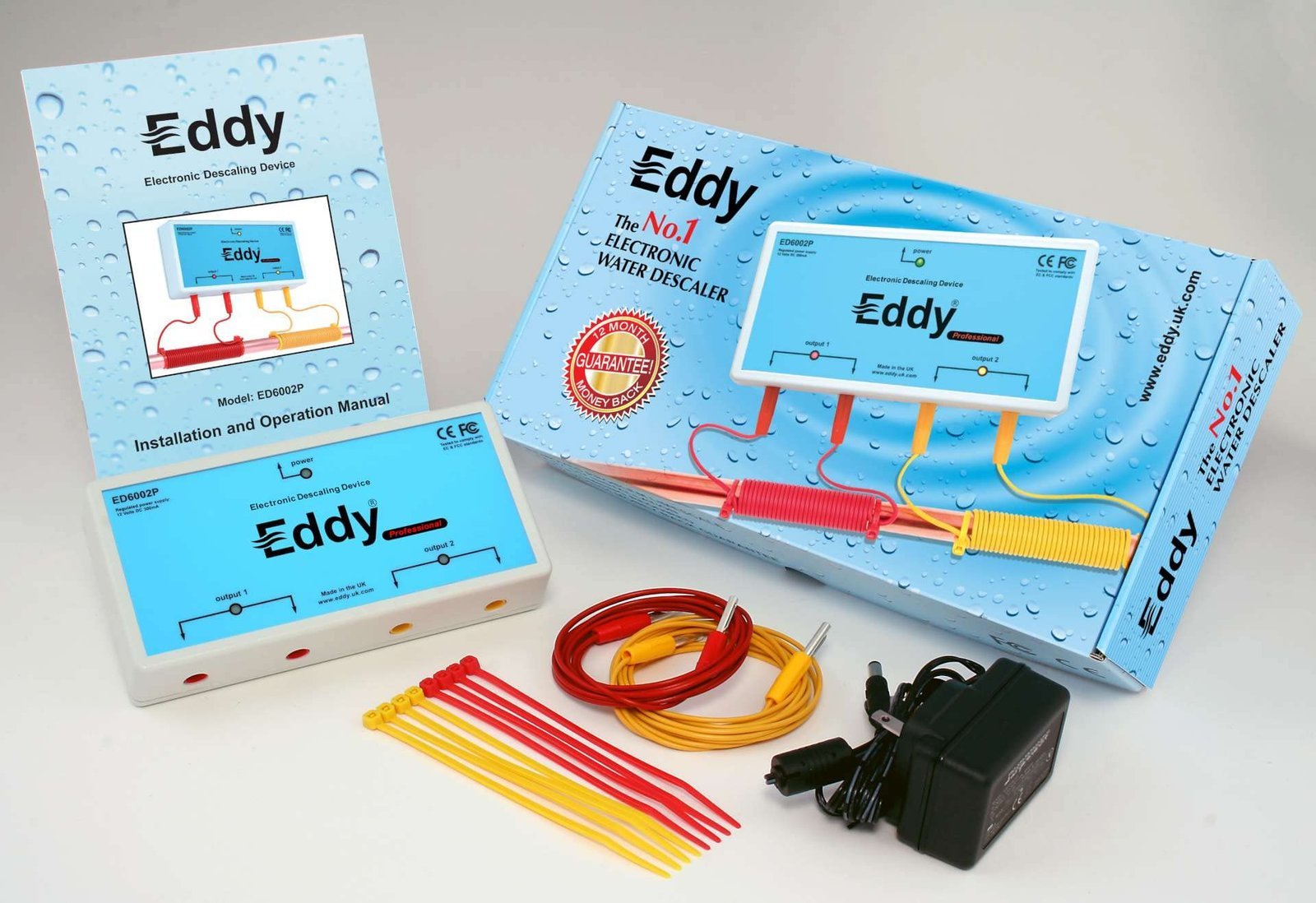
Our research into electromagnetic descaling technology has shown interesting results. These systems offer a unique approach to scale prevention without requiring direct water connection.
Key features we’ve evaluated:
For a detailed comparison of these technologies, check our water descaler vs. softener comparison here.
Through our testing, we’ve found that combination systems offer a comprehensive solution for homes facing multiple water quality challenges. These units integrate both water softening and whole-house filtration capabilities, making them ideal for addressing hardness issues while removing additional contaminants.
We’ve evaluated both salt-based and salt-free versions paired with various filtration technologies:
Our experience with mobile applications has shown that portable softeners provide an effective solution for:
These compact units typically serve 1-2 people and require manual regeneration for optimal performance. Based on our field testing, we particularly recommend the On The Go Portable Softener for its reliable performance in mobile applications.
Through our market research and installation experience, we’ve compiled current pricing ranges for different system types:
| System Type | Average Price |
|---|---|
| Salt Free Conditioners | $500-$2500 |
| Single Tank Ion Exchange (Salt Based) | $800-$2,500 |
| Dual Tank Ion Exchange (Salt Based) | $1500+ |
| Electronic Magnetic Descalers | $50-$300 |
| Combo Softener & Filter Systems | $1500-$3000 |
| Portable Ion Exchange (Salt Based) | $150-$400 |
| Commercial Systems | $2000+ |
In our professional testing and evaluation, we’ve found it important to note that true water softening only occurs with salt-based systems. Let’s break down the key differences we’ve observed:
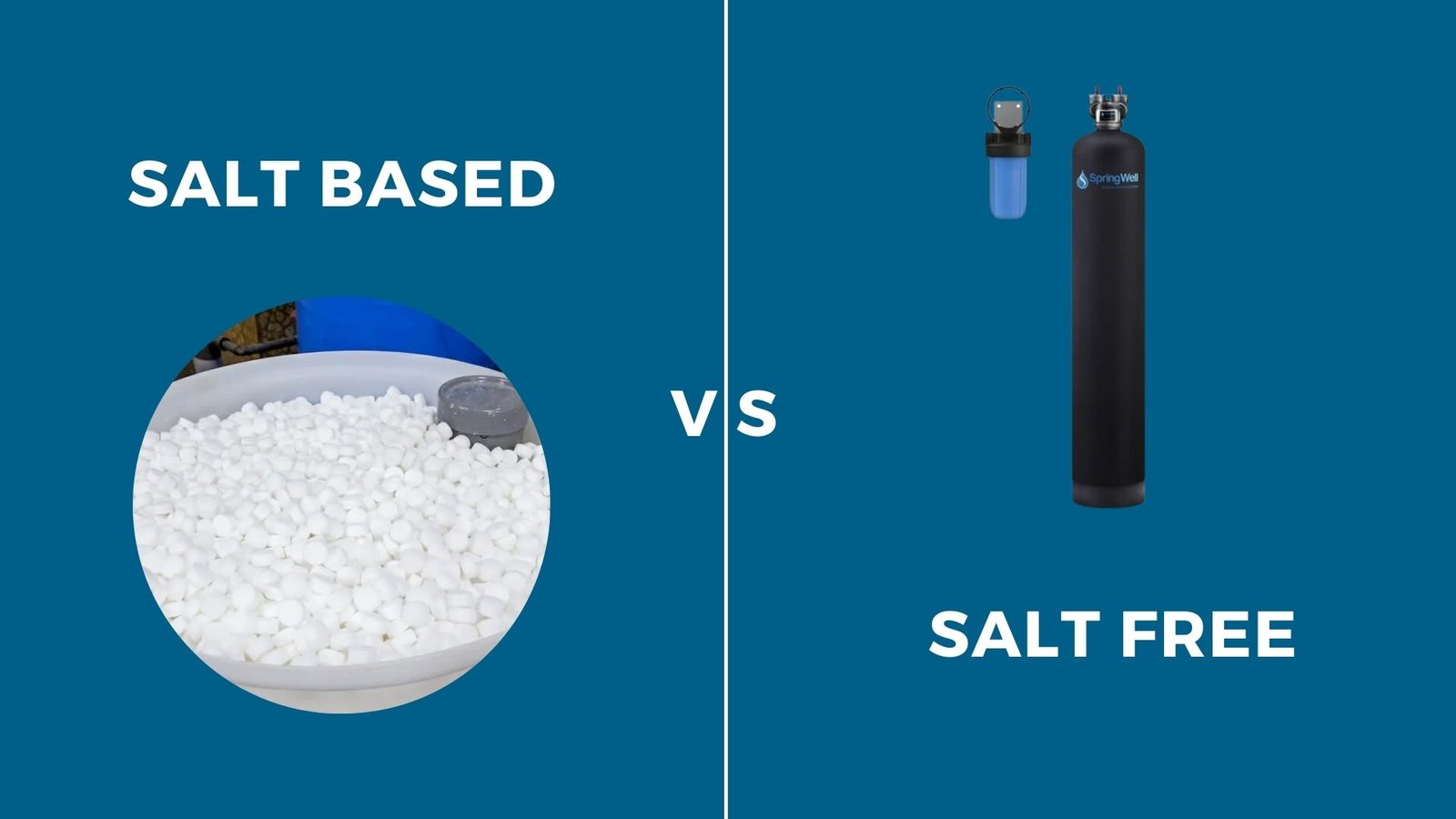
Our extensive testing has shown that traditional salt-based systems offer the most complete hardness removal solution. While these systems dominate the market and provide more product options, we’ve noted several operational considerations:
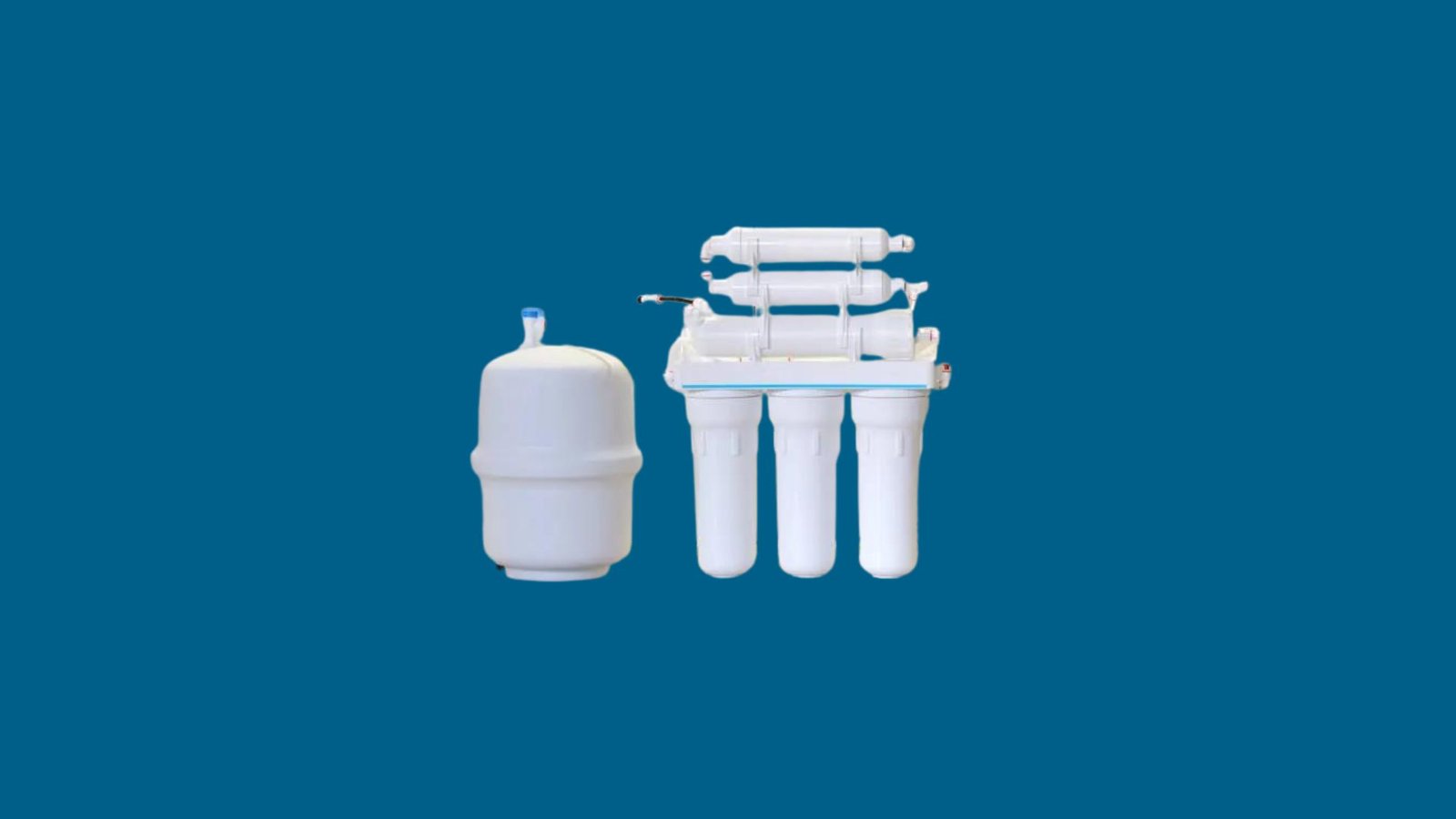
Our testing has shown that reverse osmosis (RO) systems effectively remove hardness minerals through their semi-permeable membranes, along with calcium and magnesium. However, we’ve found some important practical distinctions in real-world applications.
Key findings from our research:
Based on our experience, we typically recommend:
Through our installation experience and customer feedback, we’ve found that water softener installation difficulty varies by model and setup. While many systems offer DIY-friendly designs, we always emphasize the importance of proper installation for optimal performance.
Maintenance requirements typically include:
For detailed guidance based on our installation expertise, check our comprehensive guides:
Our experience has taught us that selecting the right water softener requires careful consideration of several factors.
Before starting your selection process, we strongly recommend checking local regulations regarding water softener installations, as some areas restrict certain types of systems.
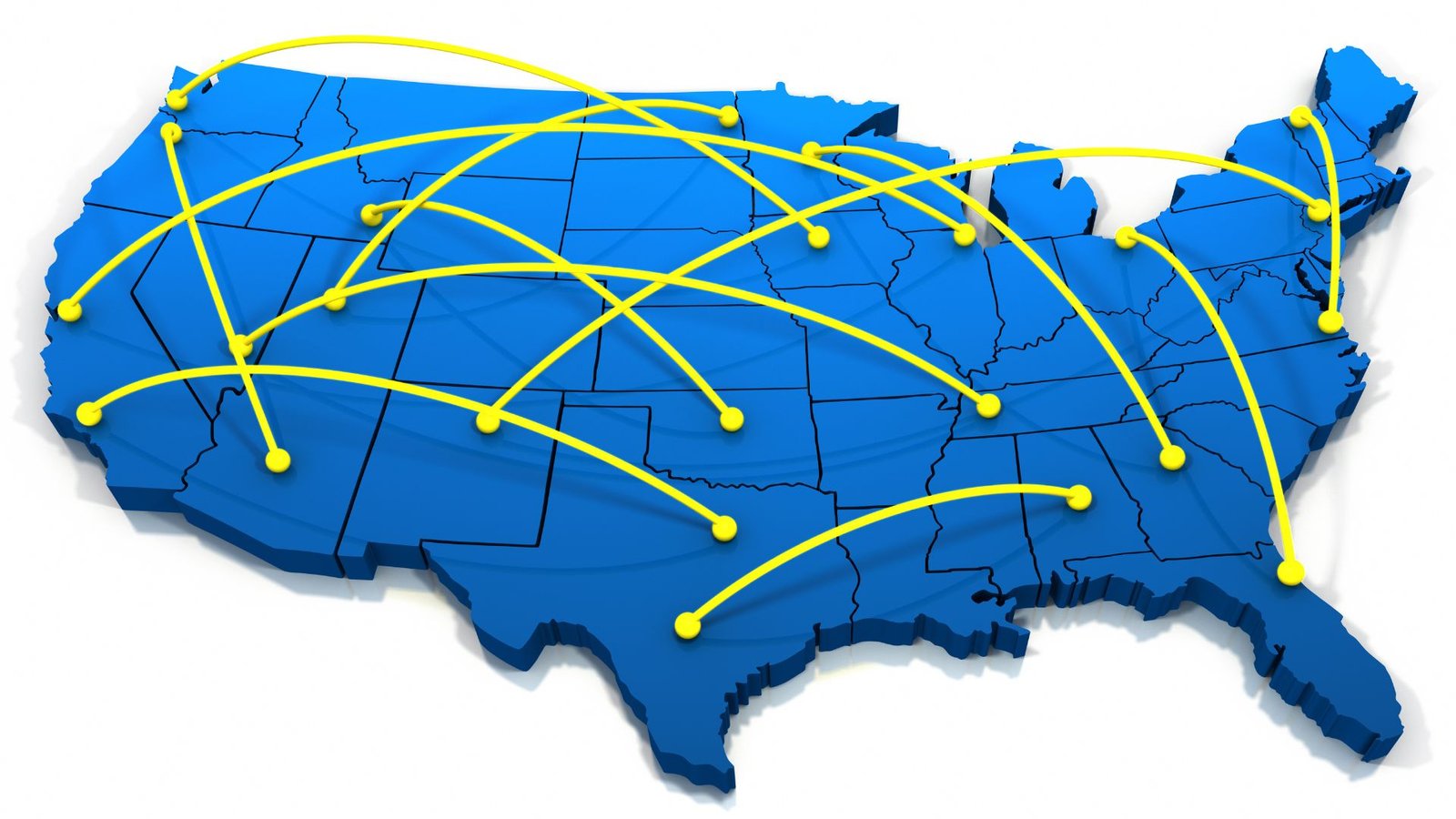
We’ve observed significant regional variations in water hardness. For example:
Understanding your local water conditions is crucial for effective treatment. Here’s a reference map of U.S. water hardness levels:
Our testing has shown that system selection should be based on your specific water conditions:
For extremely hard water:
For moderately hard water:
Our installation experience has taught us that proper sizing is critical for optimal performance. Here’s our proven calculation method:
Key Factors to Consider:
Sizing Formula:
Sample Calculation:
For a family of three with:
Calculation:
Result: System needs minimum 21,840-grain capacity with weekly regeneration
Through our nationwide installation experience, we’ve learned that local regulations can significantly impact system selection. Several states have restrictions on salt-based softeners due to wastewater concerns:
Most restrictions target older, inefficient systems. For detailed information about your area, see our comprehensive water softener ban informational guide here.
Based on our extensive testing and installation experience, we’ve identified these crucial factors for choosing the right water softener:
Our testing shows that system choice should primarily depend on your water hardness levels:
For very hard water (over 7 GPG):
For moderately hard water:
Through our installations, we’ve found that proper sizing is critical for salt-based systems. Higher grain capacity means more soft water production between regenerations.
Key factors for capacity calculation:
Sample calculation for a three-person household:
13 GPG (8+5) × 240 gallons × 7 days = 21,840 minimum grain capacity
Our testing has confirmed that different water conditions require different treatment approaches:
Main technologies we’ve evaluated
Nucleation-assisted crystallization:
Our field testing emphasizes the importance of maintaining adequate water pressure. Look for systems that maintain your home’s existing flow rate to avoid pressure drops.
Through extensive testing, we’ve identified three main regeneration approaches:
Timed Regeneration:
Manual Regeneration:
Through extensive testing, we’ve identified three main regeneration approaches:
Timed Regeneration:
Manual Regeneration:
Our long-term testing has shown resin quality significantly impacts system longevity:
Key durability factors we evaluate:
Through our product evaluations, we’ve found that third-party certification provides valuable validation of system performance. While not essential (as smaller manufacturers may produce excellent systems without certification), NSF certification offers additional confidence.
For water softeners, we specifically look for ANSI/NSF 44 certification, which covers:
Our experience has shown that warranty coverage directly correlates with manufacturer confidence in their product. We recommend:
Our market analysis shows water softener costs typically range from $300 to $3,000, with ongoing expenses for salt-based systems ($5-$10 monthly for salt, more for potassium).
Key features affecting price include:
Brand Quality:
System Features:
After extensive testing and evaluation, we confidently recommend:
Best Salt-Based System:Springwell’s SS
Runner-Up:SoftPro Elite
Best Salt-Free Option:Springwell’s Futuresoft model
Remember: A quality water softener represents an investment in your home’s infrastructure, protecting plumbing, appliances, and water quality. We consistently find that choosing quality over initial cost savings provides better long-term value.